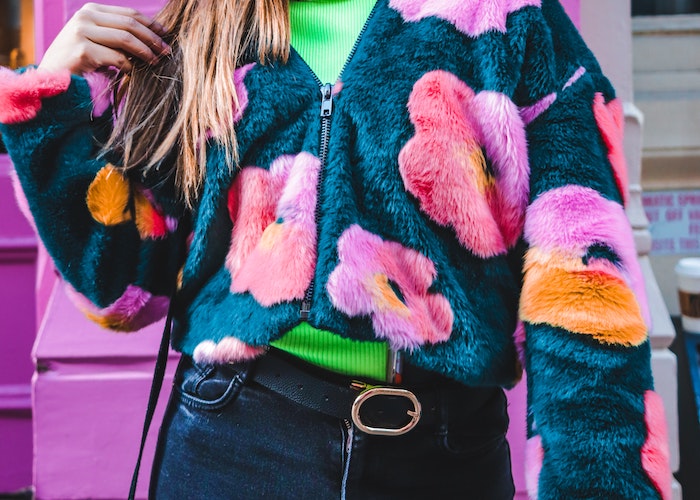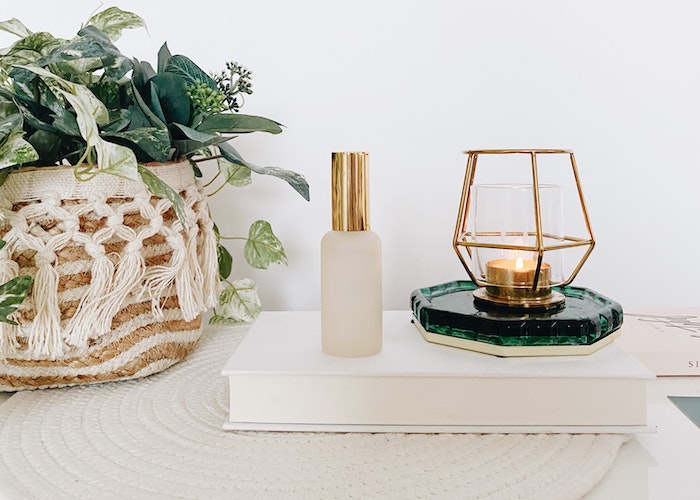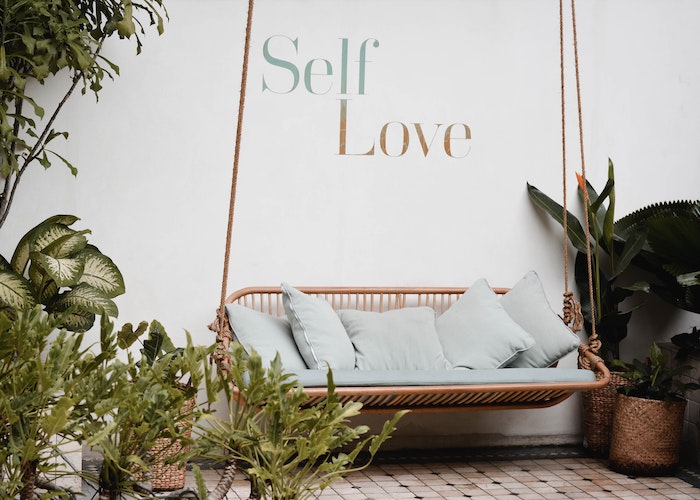Healthier While Heavier: The Diet Plan That Embraces My Weight Gain (& Helped Me Cope With Fatphobia)

[Note: This article discusses E.D. and sensitive discussions surrounding dietary habits and mental health.]
About eight years ago, I started a course of antipsychotics that eventually led to significant weight gain. As the years have gone by, my dosage has crept higher and higher, and two other psych meds have been added to the mix. All of them carry similar side effect profiles, especially increased appetite and weight gain.
In total, I’ve put on almost 100 pounds since starting these specific meds. The medications have given me many things: increased stability, the ability to sleep and eat, and overall improved functioning. But they’ve also given me something that’s been harder to cope with: a completely different body, and the negative feedback that comes with living in it.
My History
As I’ve written about for TFD many times, I have a lengthy history of mental health issues, ranging from depression and anxiety to borderline personality disorder and PMDD. They’ve been a massive hurdle to my general wellbeing, and the fact that I eventually accepted treatment in my late teens is a positive thing.
Before going on medication, I was underweight (when unmedicated, I have basically no appetite). And when I was underweight, growing up, I remember classmates spreading rumours that I was anorexic. I had to defend why my body was so small. But once I started gaining weight, everything shifted.
The Comments
As I became what the lousy BMI indicator deems “overweight,” there was a resounding sentiment among pretty much everyone in my life: You’re too fat and you need to lose weight.
From my family to my partner at the time to my physician, everyone assumed that because I was fat, I was now less healthy. (The funny thing is, these medications have made me infinitely more healthy, but everyone was so concerned with the weight part).
Even at my highest weight, my lab results have been perfectly normal (and even if they weren’t, that wouldn’t justify rude comments either), so there were never genuine medical concerns at play. I’ll say it clearly: it’s nobody’s business to comment on your body, and no body is a bad body.
“It’s nobody’s business to comment on your body, and no body is a bad body.”
Disordered Eating
After realizing that everyone in my life viewed my weight gain as a negative thing, at one point, I decided to take matters into my own hands. I began to spiral into what would eventually become disordered eating in pursuit of weight loss, obsessively counting every calorie I ate, logging every little movement I made using a fitness tracker, and fixating on the calories in vs. calories out side of things. I even joined a gym and forced myself to do workouts I absolutely hated.
Disordered eating habits may appear to be in pursuit of “health,” but in reality, they starve you of a life lived fully. I remember getting mad at myself because I chewed an extra piece of gum one day, and I knew it would add five extra calories to my daily total. It was no way to live.
And I did lose weight — for a while. Everyone in my life complimented me. It was clear to me: I was in a smaller body, and it was supposed to make me more worthy. But the thing about intentional weight loss is that it rarely, if ever, works — and often leads to more weight gain over time.
I lived this reality myself, losing the same 30 pounds and then regaining it multiple times, resulting in a constant yo-yo weight cycling, which in itself brings various health risks (if you needed another reason to see the harm in intentional weight loss).
“Diet Culture” Interventions
I even spent a long time working with a dietitian in the pursuit of losing weight for my “health.” She was a lovely person, but still supported my desire for intentional weight loss by giving me “health-conscious” swaps that I became obsessed with. I also took an “emotional eating” class that treated eating almost like an addiction. All of these things I did in the name of “health,” but they only fueled my disordered eating more.
Finding Intuitive Eating
Finally, after eight years of navigating weight gain and fatphobia, I’ve found the peace I’ve been looking for in a philosophy called Intuitive Eating. (Intuitive Eating is a self-care eating framework developed by dietitians Evelyn Tribole and Elyse Resch.) At a low point in my disordered eating, I took the original book out from the library. It wasn’t a magical cure, but as the years went by, I gradually started to understand the Intuitive Eating message and started to unlearn the diet culture we all live in. I started following Intuitive Eating dietitians and practitioners online, and eventually took an online course.
Then, the turning point in my journey was deciding to invest in an intuitive eating coach. It was an expensive choice, even with a sliding scale, but it was ultimately worthwhile. I was privileged enough to be living at home with my parents at the time, and to have a stable source of income that allowed me the funds to pay for my coach. I want to recognize that this is not possible for everyone, and as with many mental health issues, those with disordered eating/eating disorders often suffer in silence when they can’t afford healthcare. This is a systemic issue that absolutely needs to be addressed at a higher level.
“I finally learned how to embrace and unlearn the hate I had developed for my own body…”
Still, I made a point of budgeting for three months of coaching. It was absolutely transformative. I finally learned how to embrace my bigger body through a HAES (health at every size) and Intuitive Eating framework. At last, I spent time working with my coach, one-on-one, to unlearn the hate I had developed for my own body.
Now, I’m finally at a place where I can eat foods I once deemed “unhealthy” or “too high in calories” without the stress and guilt I once had. I stopped wearing my fitness tracker. I no longer track my calories. I move my body in ways that feel good to me: walks around my neighborhood and at-home yoga classes. I don’t love my body by any means, but I can respect it and know that it deserves to be nourished and accepted at any size. And I even practise what Intuitive Eating calls “gentle nutrition,” making food choices that make my body feel good but that aren’t restrictive.
It’s taken me a long time to get here, and it’s taken a massive amount of energy and resources to unlearn the body hate and disordered eating I developed. The most important thing I’ve realized is that my disdain for my bigger body didn’t come from me at all — it came from the comments I received from other people. Their judgements aren’t mine to carry anymore. I can choose to respect my body — I can take that power back, and I can heal.
Mercedes Killeen is a Toronto-based freelance writer and editor. You can learn more about her work, and order her freelance services, at mercedeskilleen.com.



